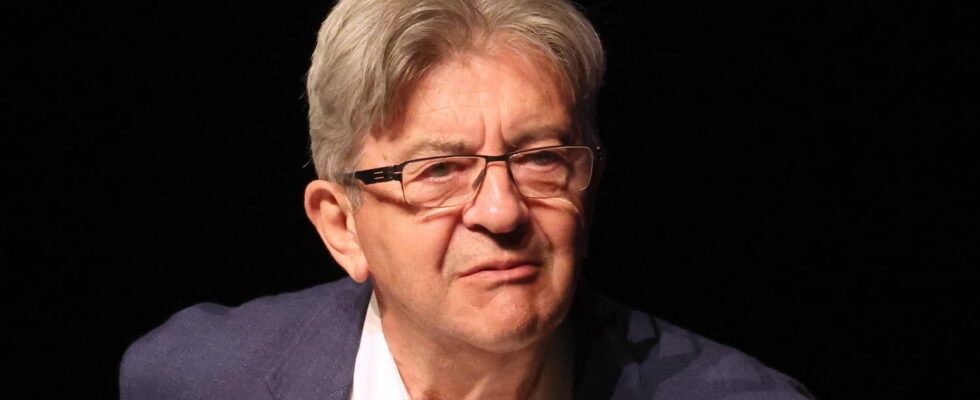While Emmanuel Macron has formally refused to appoint an NFP government, Jean-Luc Mélenchon is brandishing the threat of impeachment for the second time. A defense of interests that are both personal and collective.
Jean-Luc Mélenchon is back at it. He who had already mentioned the idea of filing a motion of impeachment againstEmmanuel Macron a few days ago, this time promised to go all the way. “The President of the Republic has just created a situation of exceptional gravity. The popular and political response must be swift and firm. The motion of dismissal will be filed,” he wrote on X in reaction to the refusal of the Head of State to appoint a government of the New Popular Front (NFP) expressed on the evening of Monday, August 26.
The presidential decision has emboldened the will of the master thinker of La France insoumise, if that were necessary, to initiate the procedure of impeachment of the head of state. As when he brandished the threat for the first time, on August 18, Jean-Luc Mélenchon can count on the unwavering support of the rebellious, but his idea still does not appeal to all the forces of the NFP. However, it is making its way into the minds of a few who are beginning to consider this solution in the face of Emmanuel Macron’s categorical refusal to listen to their injunction to appoint Lucie Castets to Matignon. If the rebellious leader is more carried away by the idea of filing a motion of impeachment than the other forces of the NFP, it is because it serves his interests more than those of his partners of the moment.
Jean-Luc Mélenchon has probably not given up on running for president in 2027. In any case, he intends to make his camp win. In this perspective, all opportunities seem good to put himself forward and pose as a leader, or as the only alternative. In this sense, the impeachment motion can serve him in several ways:
1. He can blame Emmanuel Macron for the institutional blockage
The NFP or its members refuse to be part of a coalition, Emmanuel Macron refuses to appoint an NFP government. Who is responsible for the impasse? The simple fact of launching an impeachment procedure, provided for by Article 68 of the Constitution in the event of the Head of State failing in his duties, is enough to reinforce the idea that the President of the Republic is at the origin of the current institutional blockage. LFI repeatedly points out that the dissolution of the National Assembly was decided by Emmanuel Macron on June 9, alone, and points out his refusal to appoint the NFP candidate to Matignon, despite the numerical superiority of the group in the Assembly: all the ingredients are there to pin the blame on the Head of State. The latter “does not recognize the result of universal suffrage” according to LFI, which accuses him in its press release of losing himself in “abuse of power” to reverse the trend.
This attempt serves both LFI, and therefore Jean-Luc Mélenchon, and the other member parties of the NFP. But the founder of the rebellious party has an additional argument in his favor: he said he was ready to give up the appointment of rebellious ministers in a Castets government if that allowed the NFP to access Matignon. A way of appearing as a champion of the general interest, defender of the program and ideas, having sacrificed government posts that he had little chance of obtaining and/or keeping in any case. The poker move was ultimately well thought out.
2. He can come forward and put pressure on other left forces
Being the first to defend a motion of impeachment, Jean-Luc Mélenchon positions himself as the man of the left most committed against the Macronist authority within the NFP. A strategic position since it allows him either to appear as an opinion leader if the PS, the PCF and the Ecologists follow him, or as the only real opposition force in this sequence, if his political partners, the right or the extreme right refuse to support the motion.
The impeachment motion is one of the (many) issues that divide the NFP, and this procedure carried out to completion risks weakening the alliance of the left. If it were to break up, Jean-Luc Mélenchon, wearing his hat as a firm opponent of Emmanuel Macron, could place the responsibility for the failure of the left on the three other parties with much more timid methods.
3. He places his pawns for the next presidential election
Already a three-time presidential candidate, the man who has never managed to qualify for the second round of voting is already preparing his game for the next election, normally scheduled for 2027. Although he said last March that he “wanted to be replaced”, he will do everything to ensure that LFI imposes itself at the head of the left: “The next candidate at the head of the left will be Insoumise”, he wrote at the beginning of the year.
If the NFP survives until then, Jean-Luc Mélenchon hopes to be its leader and if the alliance breaks down along the way, it will be a question of being better than the adversaries and former allies to win. Establishing himself now as the best opponent to the power in place – Emmanuel Macron will not be able to run again, but will send an heir to claim the presidency before a possible return in 2032 – therefore allows him to lay the foundations for a possible duel between him and Marine Le Pen.
